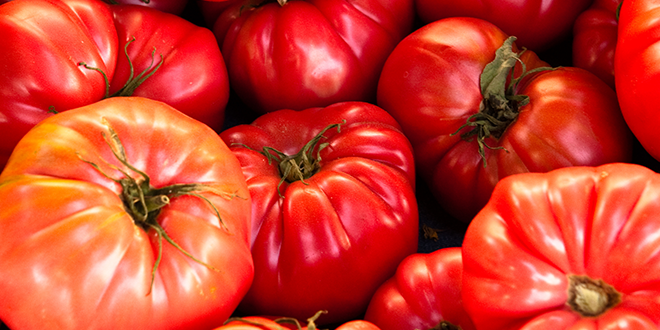Mar 28, 2019A Q&A with FPAA President Lance Jungmeyer on tomato imports
Words are flying between different interests in the fresh tomato industry as the U.S. Commerce Department threatens to withdraw May 7 from the 2013 Suspension Agreement on Fresh Tomatoes from Mexico.
Withdrawing from the agreement would restart an investigation into “dumping” of fresh Mexico-grown tomatoes in the U.S. market, or selling them at a lower cost in the U.S. than they are sold domestically.
Fresh Produce Association of the Americas (FPAA) has been one industry group in favor of re-negotiating the suspension agreement. The Fresh Produce Association. Self-described as “an association of U.S. importers and allied companies involved in the importation and distribution of fresh produce, primarily from Mexico,” the group is based in Nogales, Arizona, “the largest port of entry for produce grown in Mexico.”
In one recent letter to U.S. Secretary of Commerce Wilbur Ross, FPAA criticized growing practices for Florida tomatoes and the state’s suitability for growing the tomatoes.
FPAA President Lance Jungemeyer recently responded by email to some questions from Vegetable Growers News about the letter.
Vegetable Growers News: The FPAA letter to Ross criticized Florida growing practices. Can you give me some detail on the Mexican growing practices? How are they superior? How are you able to get a vine-ripened tomato from Mexico to Michigan without picking green tomatoes and gassing them later?
FPAA President Lance Jungemeyer: To be considered vine-ripe, a tomato has to be picked at some stage of turning color. Once they start turning color they continue to ripen naturally in the course of the transport. Customers request tomatoes at specific stages of ripeness based on their own consumptive patterns.
VGN: I suspect, but I’d like to confirm: Do the drier growing conditions (in Mexico) allow the use of fewer pesticides?
Jungemeyer: Most tomatoes in Mexico are grown in arid regions, which is a natural deterrent to pests. However, with agriculture pests are nonetheless uninvited guests. When growing in protected agriculture, whether in Mexico or Michigan, you are generally able to keep out most bugs, and the bugs that do get in the structure in most cases can be controlled with integrated pest management, such as using predatory wasps to quell whitefly.
VGN: There’s been a surge in greenhouse-grown tomatoes recently in places as far north as Maine and Ohio. Is there any serious danger of greenhouse growers taking over some of the winter tomato market from both Florida growers as well as importers?
Jungemeyer: The greenhouse segment is ripe for growth. It is the future. Field grown tomatoes that must be gassed to turn red are losing favor even in burger chains. Wendy’s switched to U.S. and Mexican greenhouse tomatoes exclusively. That has to say something about the future of gassed greens.
VGN: One thing I know about growers is they do like to hedge their bets. Do you know any growers with interests/farms in both Florida and Mexico?
Jungemeyer: There are plenty. Please see the Ross letter attachments.
VGN: What’s next: Is there any other legal or procedural recourse for FPAA?
Jungemeyer: We are not a negotiating party to the case. We continue to comment on the record to convey our viewpoint. Most reasonable people agree with it.
VGN: What changes once the U.S. withdraws from the agreement May 7?
Jungemeyer: We believe the parties will come to a resolution, because the disruption in the business would be severe. If there is not a successful renegotiation, duties would be applied on importers. It has been presumed to be 17.56 percent.















